Essex Boys killer Michael Steele has been released from jail after 27 years despite a last-ditch attempt by ministers to keep him behind bars.
Along with accomplice Jack Whomes, the triple murderer killed Tony Tucker, 38, Pat Tate, 37, and Craig Rolfe, 26, with a pump action shotgun in Rettendon, Essex, in 1995.
He was jailed for life at the Old Bailey three years later aged 55 after being found guilty of murder and conspiring to import drugs into the country.
After Whomes’s release in 2021, Steele, now 82, has also been freed after a decision by the Parole Board, the Ministry of Justice told the BBC.
A spokesperson said: ‘Our thoughts remain with the family and friends of Craig Rolfe, Tony Tucker and Pat Tate.
‘This decision was made by the independent Parole Board after a thorough risk assessment.
‘Michael Steele will be on licence for the rest of his life, with strict conditions and intensive probation supervision. He faces an immediate return to prison if he breaks the rules.’
The Parole Board first ruled that his imprisonnment was ‘no longer necessary for the protection of the public’ back in February and released the murderer on licence.
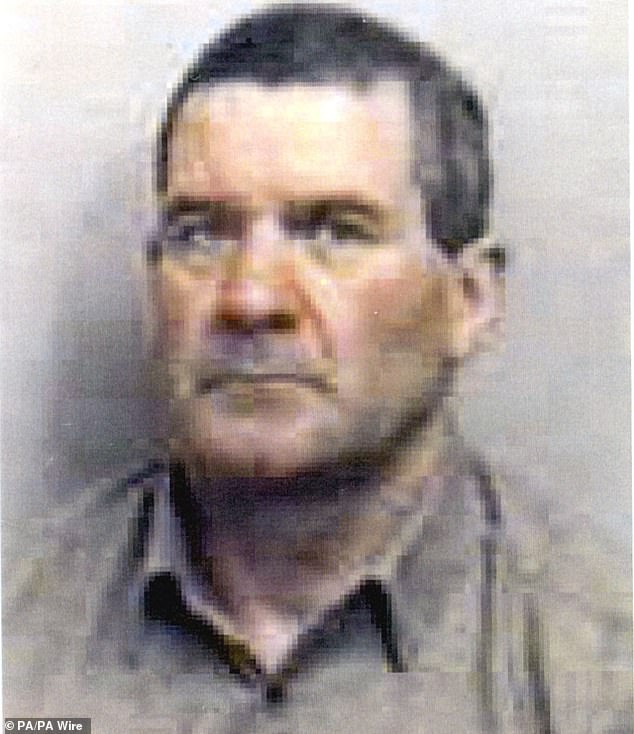
Michael Steele was jailed in 1998 alongside accomplice Jack Whomes for the so-called ‘Essex Boys’ murders three years prior. He has now been freed after 27 years
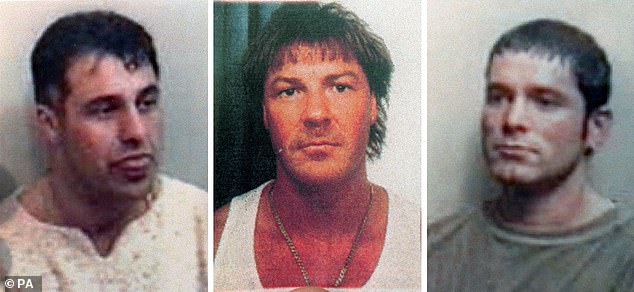
(Left to right) Execution victims Patrick Tate, Anthony Tucker and Craig Rolfe, who were found in a Range Rover with extensive injuries
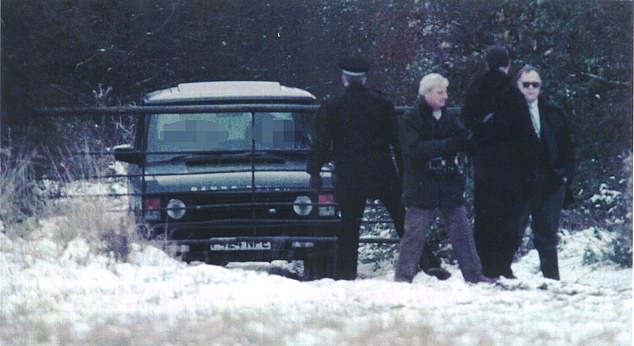
The 4×4 was discovered on a farm track in Rettendon, near Chelmsford in Essex (pictured: police at the scene)
But the move was stalled after Justice Secretary Shabana Mahmood branded the decision ‘legally irrational’ and caled on the body to reconsider.
After a ‘thorough’ risk assessment, the Parole Board pressed on with the move to free Steele, despite previously expressing concerns about his chances of reoffending.
It had said of his crime: ‘Mr Steele had offended for financial gain and out of greed.
‘He had sought to maintain a level of status or respect from others by exerting power. There had also been an element of thrill-seeking in his actions.’
However, it noted his behaviour in prison had shown a ‘marked improvement’ and a psychologist commissioned by his legal team told the panel the risk levels of release were ‘minimal’.
The killer will be required to surrender his passport and cannot own a boat, airplane or firearm. He will also be required to reside at a designated address.
Steele has maintained his innocence since being convicted.
His three victims, known as the Essex Boys, were found dead in a Range Rover on isolated farmland near Chelmsford, after each being shot in the head by the shotgun.

Justice Secretary Shabana Mahmood sought to intervene in Steele’s release, calling it ‘legally irrational’ – but this has been refused by a judge
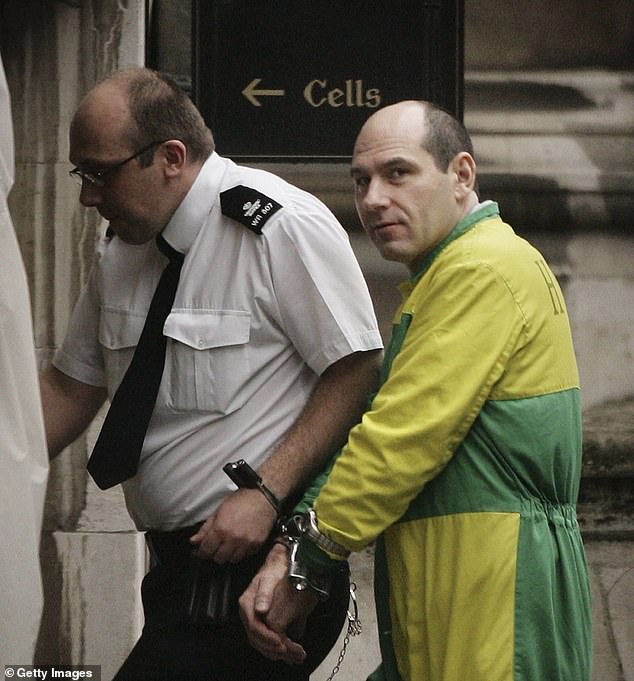
Jack Whomes (right) was also convicted of the killings and released in 2018 after his term was cut for good behaviour

Former Met Police detective chief inspector David McKelvey, who has questioned the security of Steele’s original conviction
Tate, meanwhile, had also been blasted in the stomach.
Spotting the vehicle on a snowy morning in December, farmer Peter Theobald and his friend Ken Jiggins initially thought they were poachers.
But they soon discovered they had fallen victim to a horrific slaughter, with their identities only established through their fingerprints, such was the brutality of their injuries.
During the trial in 1998, the court heard that the trio had been ambushed amid a row about drugs.
Steele, from Great Bentley, near Colchester, was handed a minimum prison term of 23 years, which elapsed in 2019.
The convictions have been the subject of some controversy and are the subject of a new Criminal Cases Review Commission probe after new evidence was found and submitted earlier this year.
The CCRC previously said there was ‘no real possibility’ of the verdicts being overturned.
And Essex Police has said the case was ‘exhaustively examined’ and there was no fresh evidence to dispute the original verdicts.
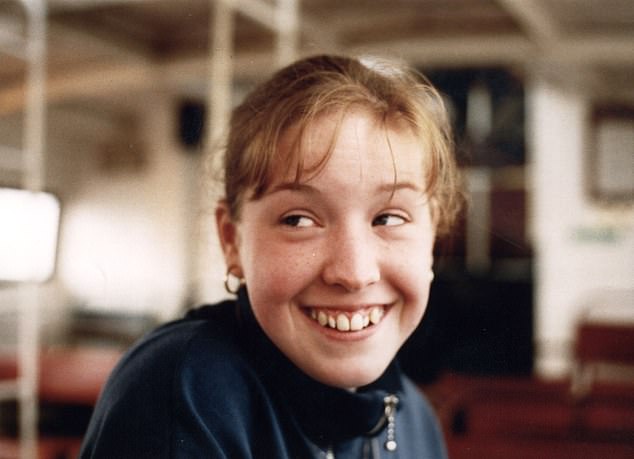
The death of Leah Betts (pictured) in Basildon was thought to have played a role in the killings

The film has since inspired a slew of TV shows, documentaries and films, including the eponymous Essex Boys starring Sean Bean (above)
But David McKelvey, a former Met Police detective chief inspector, believes Steele was convicted on the basis of a poor witness account by informant Nicholls.
Mr McKelvey, who arrested Nicholls in the first place before he turned grass, told the BBC in February: ‘(Steele) should never have been convicted in the first place.’
Connections were made between the killings and the 1990s rave scene – including the drugs death of Leah Betts in Basildon.
It was thought she was sold the drugs by Tony Tucker as she celebrated her 18th birthday at a nightclub where security was controlled by his outfit; one theory was that the executions were done in revenge.
The killings later inspired a number of films, including Essex Boys starring Sean Bean, which coined the popular term for the killings.
It also inspired the Rise of the Footsoldier film series, which featured fictionalised depictions of the three murdered men and their killers.
But its interest among ghoulish true crime enthusiasts led to the brother of the man who discovered the bodies begging people to stop visiting the area.
Bill Theobold, whose brother Peter made the discovery, said in 2023: ‘Most people just go down there without asking and some weren’t even born when it happened – it’s very bizarre.’












